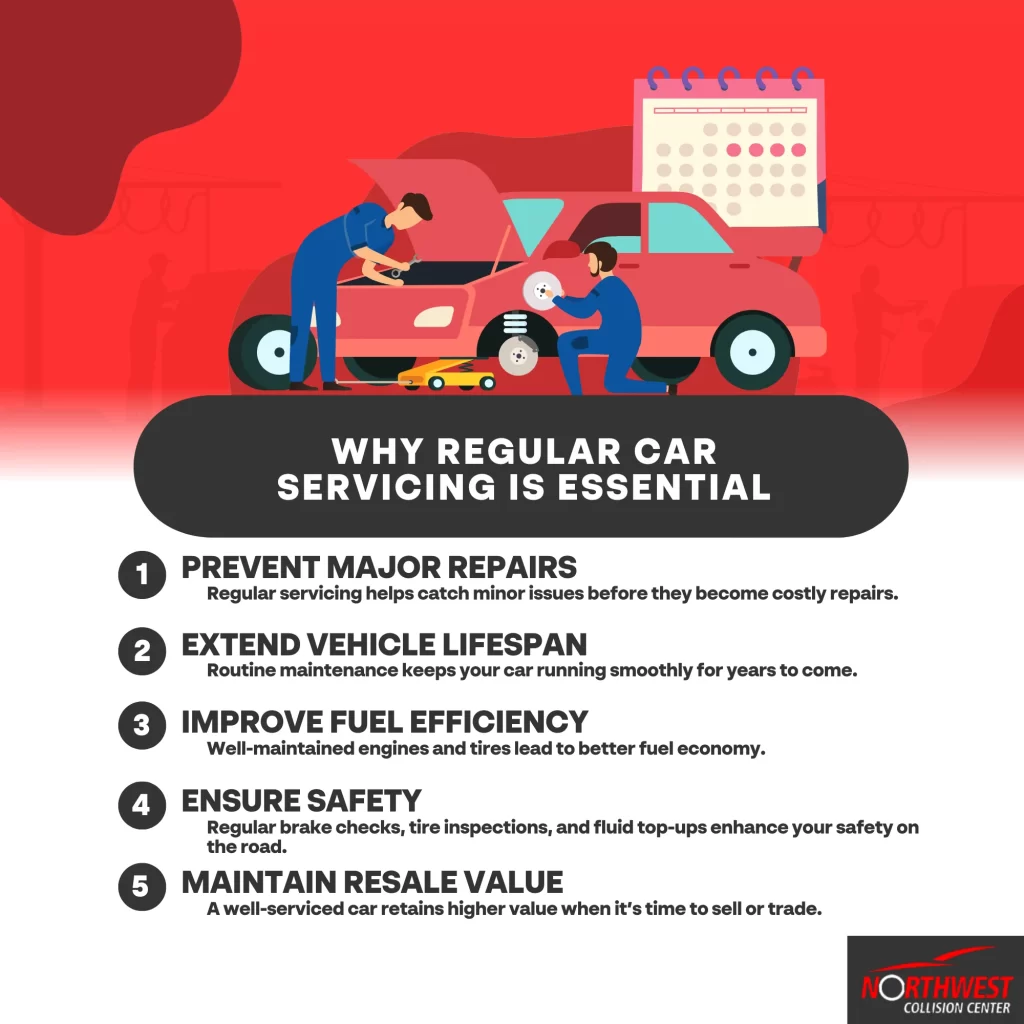Why Regular Vehicle Servicing Is Essential for Safety and Efficiency
Vehicle maintenance is a crucial aspect of ensuring safety, longevity, and optimal performance. Regular servicing not only helps in preventing unexpected breakdowns but also enhances fuel efficiency, reduces emissions, and extends the life of your car. In this comprehensive article, we will delve into the importance of routine vehicle servicing, how it contributes to safety and efficiency, and why every vehicle owner should prioritize it.
The Importance of Regular Vehicle Servicing
1. Enhancing Road Safety
Neglecting vehicle maintenance can lead to mechanical failures, increasing the risk of accidents. Regular servicing ensures:
- Proper Braking System Functionality: Brake pads, discs, and fluid levels are checked to prevent failures.
- Tire Condition & Alignment: Regular inspections help in maintaining optimal tire grip and reducing wear and tear.
- Efficient Steering & Suspension: Ensures better handling and control of the vehicle.
- Lights & Electrical System Checks: Crucial for nighttime and poor weather driving.
2. Improving Fuel Efficiency
A well-maintained vehicle consumes less fuel. Proper servicing helps:
- Cleaning or replacing clogged air filters
- Ensuring proper tire pressure
- Tuning the engine for optimal performance
- Checking and replacing engine oil for smooth functioning
3. Extending Vehicle Lifespan
Routine servicing reduces wear and tear on essential components, allowing the vehicle to run longer without major breakdowns. Timely replacements of oil, coolant, and other fluids ensure that the engine and other parts remain in good condition.
4. Preventing Costly Repairs
Small issues can escalate into significant problems if not addressed early. Regular maintenance helps in detecting minor faults before they turn into expensive repairs.
Key Components of a Vehicle Service
1. Engine & Oil Maintenance
| Component | Purpose | Frequency |
|---|---|---|
| Engine Oil | Lubricates engine components | Every 5,000-10,000 km |
| Oil Filter | Prevents debris buildup | Every oil change |
| Air Filter | Enhances fuel efficiency | Every 15,000 km |
2. Brake System Inspection
- Checking brake fluid levels
- Inspecting brake pads and rotors
- Ensuring proper braking response
3. Tire Care & Rotation
- Checking tire pressure and tread depth
- Rotating tires to ensure even wear
- Balancing wheels for smooth rides
4. Battery Health Check
- Inspecting terminals and connections
- Testing battery charge capacity
- Preventing sudden battery failures
5. Cooling System Maintenance
- Checking radiator and coolant levels
- Flushing and replacing coolant as required
6. Transmission & Gearbox Servicing
- Changing transmission fluid
- Inspecting for gear slippage or rough shifting
7. Suspension & Steering Checks
- Ensuring shock absorbers are functional
- Checking for smooth steering and stability
Benefits of Regular Vehicle Servicing
1. Reduced Environmental Impact
Proper servicing ensures reduced emissions by keeping the engine running efficiently and burning fuel cleanly.
2. Better Resale Value
A well-maintained vehicle has a higher market value and attracts potential buyers more easily.
3. Peace of Mind
Knowing that your car is in optimal condition reduces stress and enhances driving confidence.
4. Compliance with Warranty Conditions
Many car warranties require regular servicing as a condition to maintain their validity.
Conclusion
Regular vehicle servicing is not just a recommendation; it is a necessity for ensuring road safety, fuel efficiency, and long-term reliability. By investing in timely maintenance, vehicle owners can save money, reduce risks, and enjoy a smoother driving experience. Schedule your next service today and keep your car in top condition!


